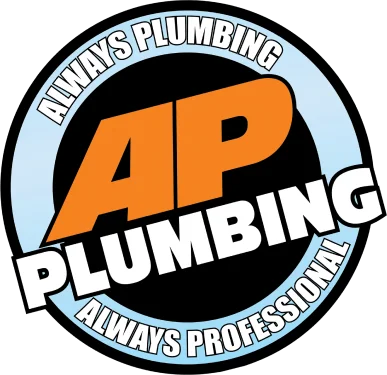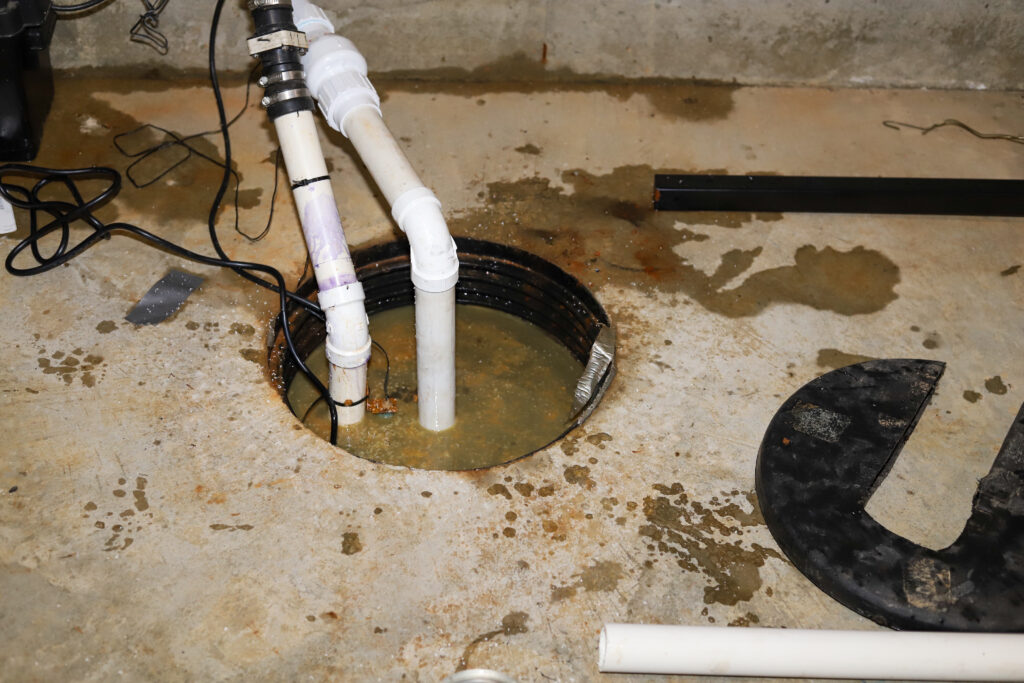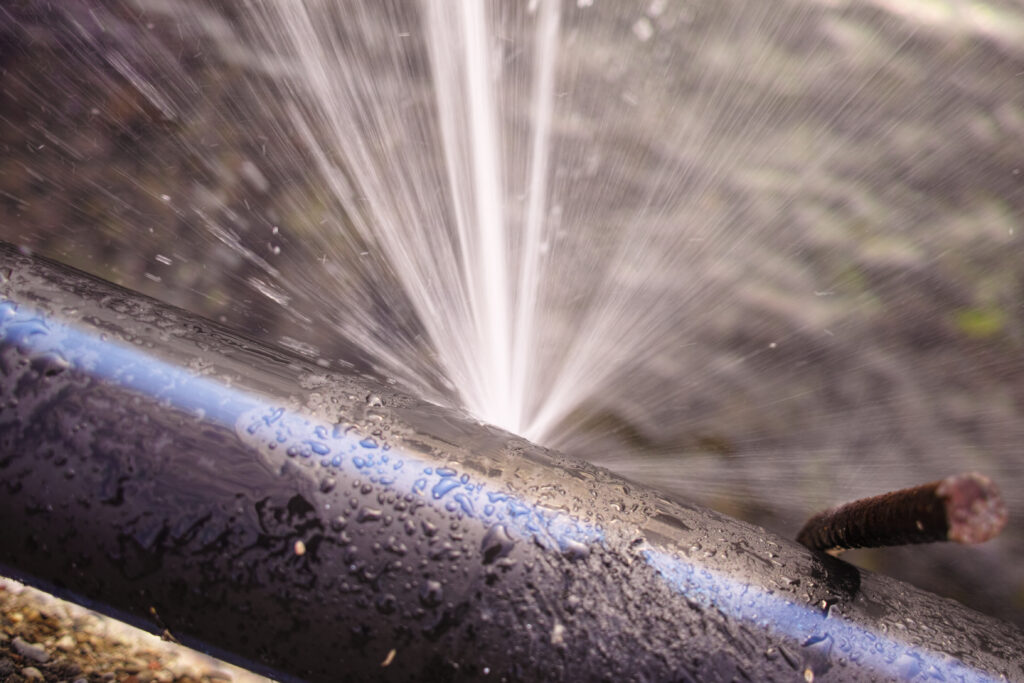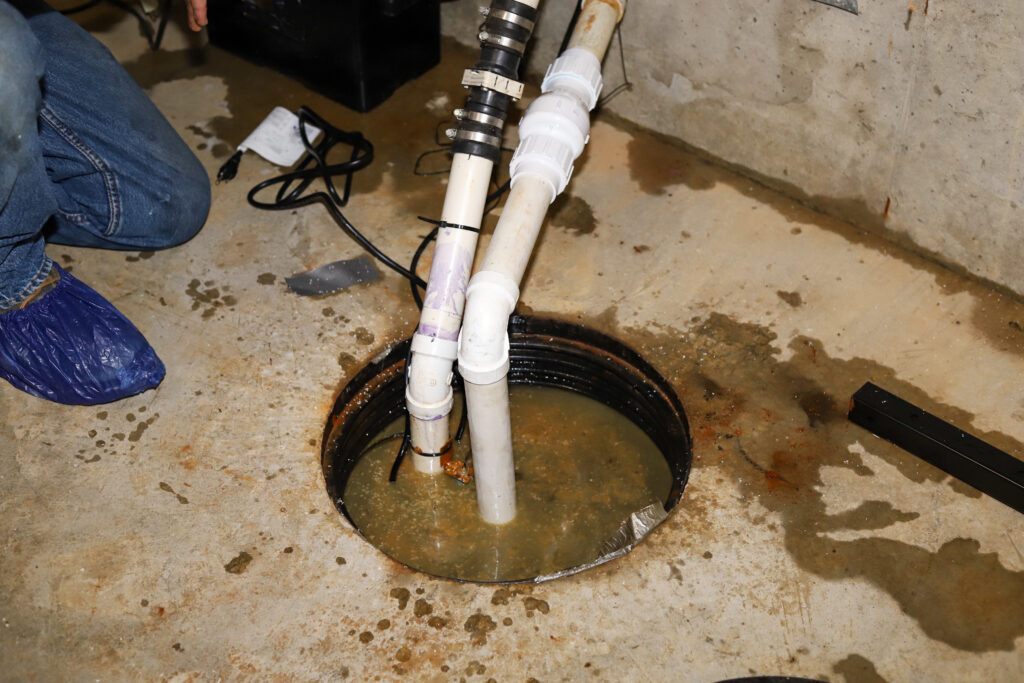Your home is a haven, and you don’t want anything to damage it — least of all, a faulty plumbing system. Although everything might seem like it’s alright with your plumbing, when was the last time you checked for slab leaks? These leaks have a way of hiding right under your nose while causing an astonishing amount of water damage.
Let’s dive into the seven most common symptoms of slab leaks!
What Is a Slab Leak?
The concrete foundation beneath your house is better known as a slab in the plumbing industry. Underneath this slab runs a complex infrastructure of water lines and sewer drains that transport fresh water to your home and wastewater away from your home, respectively. When any of these pipes develop a leak, it is known as a slab leak.
Slab leak detection is a little easier for water lines than it is for sewer drains — and it’s all because of water pressure. The flow rate of water for municipal water mains can be well over 140 PSI. As this water enters your home, it is reduced to 40-80 PSI. If the water line develops a leak, you will quickly notice the damage to your home as the water steadily gushes out due to the high water pressure. You may discover water damage or hear water running under the floors.
Leaks on the drainage side are tougher to detect but just as dangerous. If you notice any symptoms of a slab leak, it’s important to schedule a plumbing service ASAP for an inspection and possible slab leak repair.
What Causes a Slab Leak?
Slab leaks occur for a variety of reasons, the most common being poor installation. Pipes that are low-quality or even damaged (kinked, bent, or dented) will eventually weaken and develop leaks. Only work with a qualified contractor who uses high-quality materials that will last for years to come.
Other causes include soil pressure, earthquakes, poor water quality, and regular wear and tear.
How Long Can a Slab Leak Go Undetected?
What goes on underneath your slab or foundation is not clearly visible to the untrained eye, so, unfortunately, these leaks can stay hidden for a long period of time. That’s why it’s crucial to keep an eye (or ear) out for warning signs.
7 Common Symptoms of Slab Leaks
Slab leaks are a little more difficult to detect than the average water leak — but not impossible. Although you may not be trained in the art of slab leak detection, you can still watch out for these common signs of slab leaks:
- You hear the sound of running water (especially under the floors) even when your plumbing isn’t in use.
- The water bill has spiked with little change to your family’s water consumption habits.
- Floorboards are warped or buckling. Carpets are wet with no explanation. There are random “hot spots” on the floor.
- You notice signs of mild or mildew, such as water stains or musty odors.
- There is standing water around the perimeter of your house.
- Water pressure has decreased.
- The water meter continues to rise even when faucets or plumbing appliances aren’t in use.
One or two of these symptoms will probably not set off alarm bells, but if you notice multiple signs of a slab leak, it’s a good idea to get a professional plumber involved — if only for your peace of mind.
Here’s a quick test if you want to perform a DIY slab leak detection. Turn off all plumbing fixtures and appliances in your home. Check your water meter and jot down the current reading. Wait about 15-30 minutes, and do not use your plumbing during this time. Check the water meter once again. If the reading increased even though your home’s water consumption was 0 for that time period, there is a good chance you have a leak.
Choose AP Plumbing for Superior Slab Leak Detection Services
Not sure whether your plumbing is suffering from a slab leak? Don’t risk it! Get in touch with Rochester’s leaking drain pipe experts at AP Plumbing. We offer all drain services Rochester residents could ask for — from slab leak detection to routine drain cleaning. Contact us for more information.






